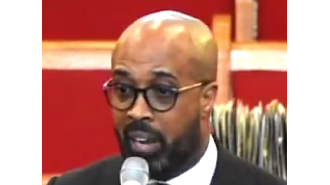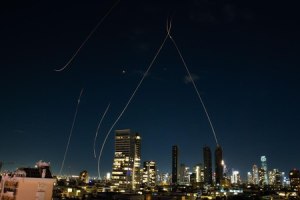Some individuals claim they can hear the Northern Lights, describing it as similar to clicking rain.
The belief that the aurora has a sound was long dismissed as superstition or a psychological illusion.

For years, the Northern Lights have been a breathtaking spectacle that has captivated people's hearts. But have you ever wondered if they make a sound? Alison Andrews, a 70-year-old woman, vividly recalls her great-aunt's story about walking home after a dance in the Cotswolds.
As she made her way through the hills, surrounded by the pristine beauty of nature with no light pollution, she heard a fizzing, buzzing sound. Suddenly, the sky lit up all around her, creating a magical moment that stayed with her for years to come. This experience sparked Alison's fascination with the Northern Lights, and after 60 years, she finally got to witness them herself from her home in Gloucestershire.
However, it wasn't quite what she expected because the lights were completely silent. This may seem surprising to some, as many people have reported hearing sounds like static, rustling leaves, or even rain when the sky is clear and the aurora is present. For decades, the idea of the Northern Lights making a sound was dismissed as mere superstition or a psycho-acoustic illusion.
However, as more and more people came forward with their experiences, scientists began to take notice and investigate whether there was any truth to it. The Auroral Acoustics program in Finland has been studying this phenomenon for the last 20 years, and their research has shed light on the possibility of the Northern Lights producing a sound. Anika Dhanda, a business analyst from London, describes the feeling of "hearing" the lights in May and October as a gut sensation, like butterflies in her stomach, accompanied by a clicking sound similar to rain.
Jade Wilson, a mother from Wales, even believes she may have captured the sound on video. In the footage she took of the lights from her backyard, she was surprised to hear what sounded like rain falling when she watched it back later. In the 1960s, there was an attempt to measure the sounds of the Northern Lights, but it proved unsuccessful.
However, recent research has shown that there is more acceptance that the lights may indeed make a sound. The big question now for scientists is why. Unto K.
Laine, a professor at Aalto University, believes that the noise could be caused by electrical discharge sounds at a height of 70m to 100m above the ground. But what does this sound actually sound like? Well, people have described it as crackling, whistling, or even the sound of electricity pylons, but much fainter.
Mike Hapgood, a space weather scientist, believes that it is possible for the Northern Lights to produce a discernible sound for humans and that it could potentially be heard in the UK. However, the area is still not well understood, and research efforts have primarily focused on protecting critical infrastructure from the effects of strong auroral activity. Despite the lack of extensive research on the subject, the fascination with the Northern Lights continues to grow.
With the rise of smartphones, anyone can capture and share photos of this natural wonder, and thousands have joined Facebook groups dedicated to the lights in the UK. When UK Aurora Updates asked its members if they had ever heard sounds from the Northern Lights, they were surprised by the number of responses from people who claimed they had. Dawn Haslen, a cardiac nurse specialist, saw the lights in Essex in May and described her experience as surreal and emotional.
She heard what sounded like rain for a minute and a half, even though the sky was clear. This sentiment was shared by many others who heard the sound, with some even reporting that wild animals seemed to respond to the lights by becoming noisier. The theory proposed by Laine suggests that the sounds occur when there is an inversion layer in the atmosphere, where warm air sits above a layer of cold air.
Negative ions from the warm air interact with positive ions from the geomagnetic storm, creating an electrical discharge and producing the crackling sound. Some individuals who are sensitive to sounds, such as those on the autism spectrum, have also reported hearing the sounds of the Northern Lights. As we approach the peak of the solar maximum, the activity of the sun, we can expect to see more spectacular displays of the Northern Lights.
So, if you ever have the chance to witness this stunning phenomenon, remember to take a moment and listen carefully – you might just hear the sounds of the Northern Lights for yourself.










